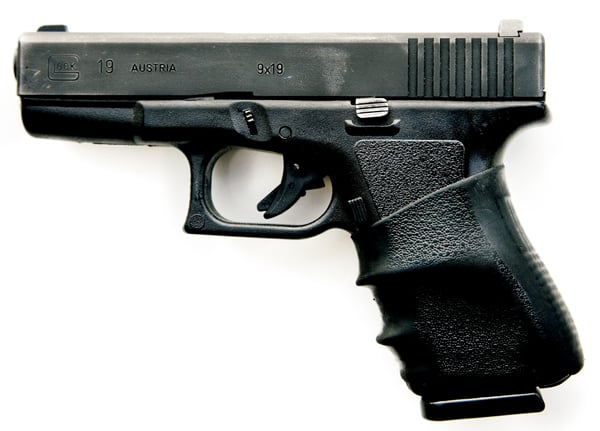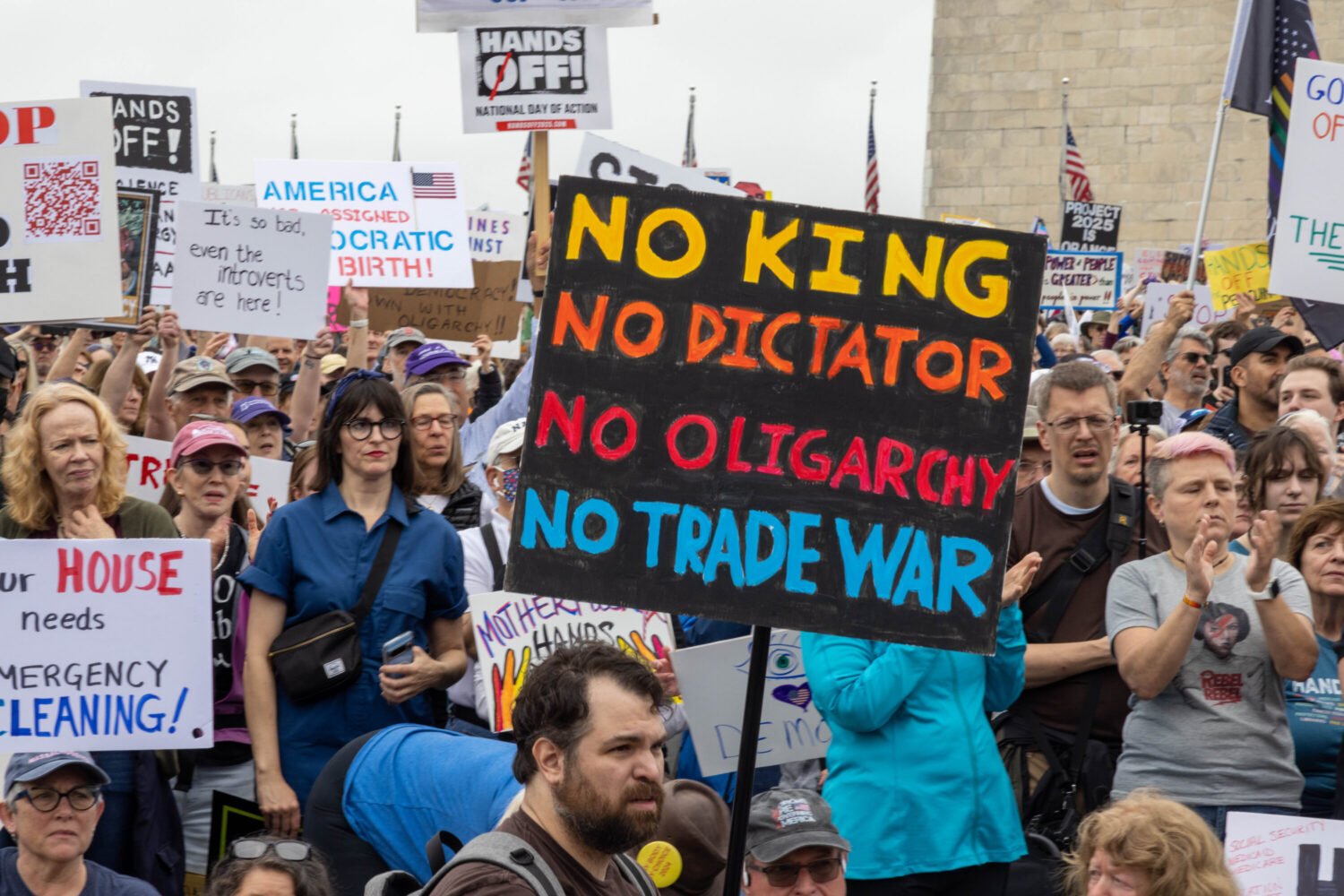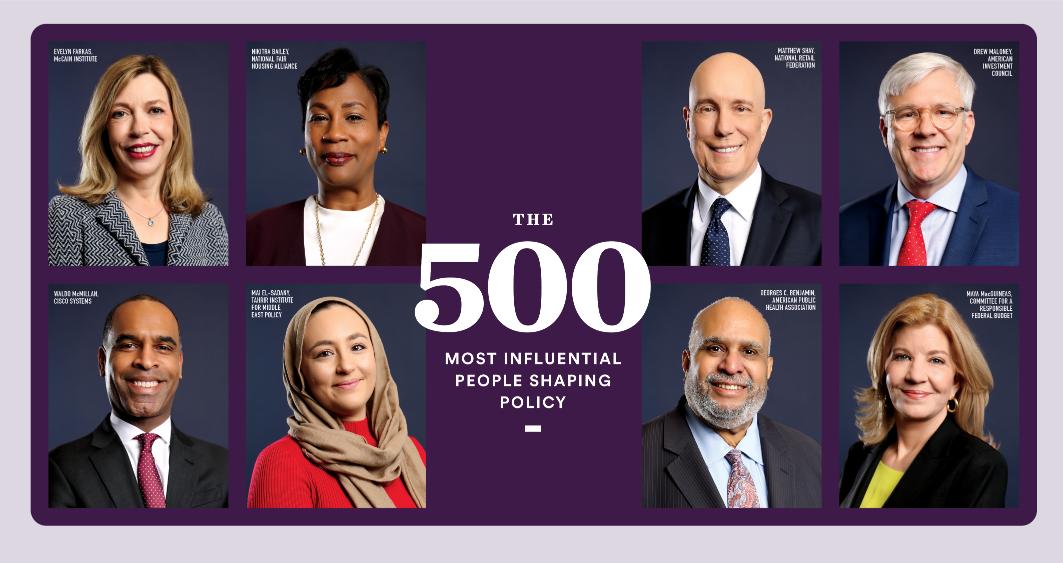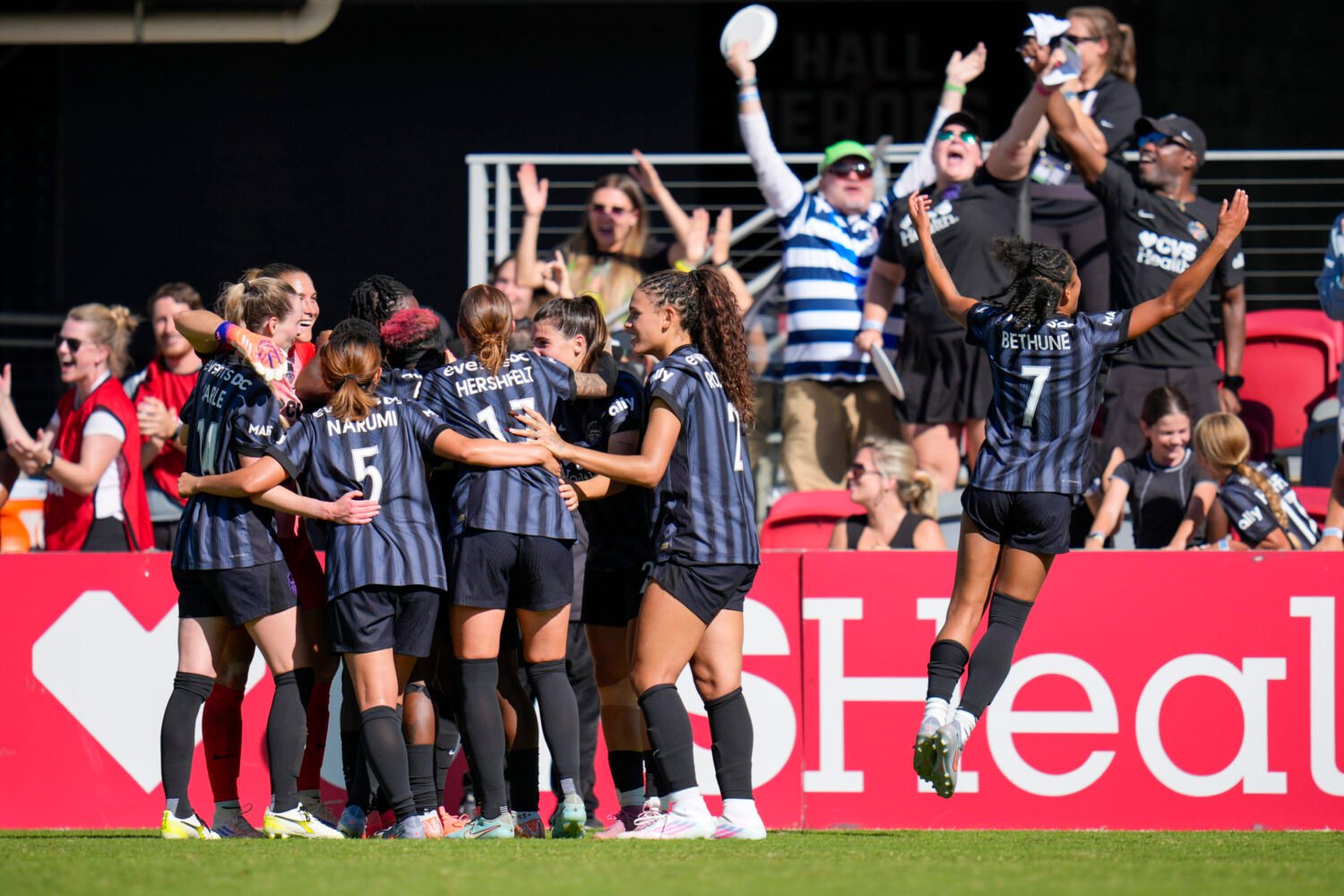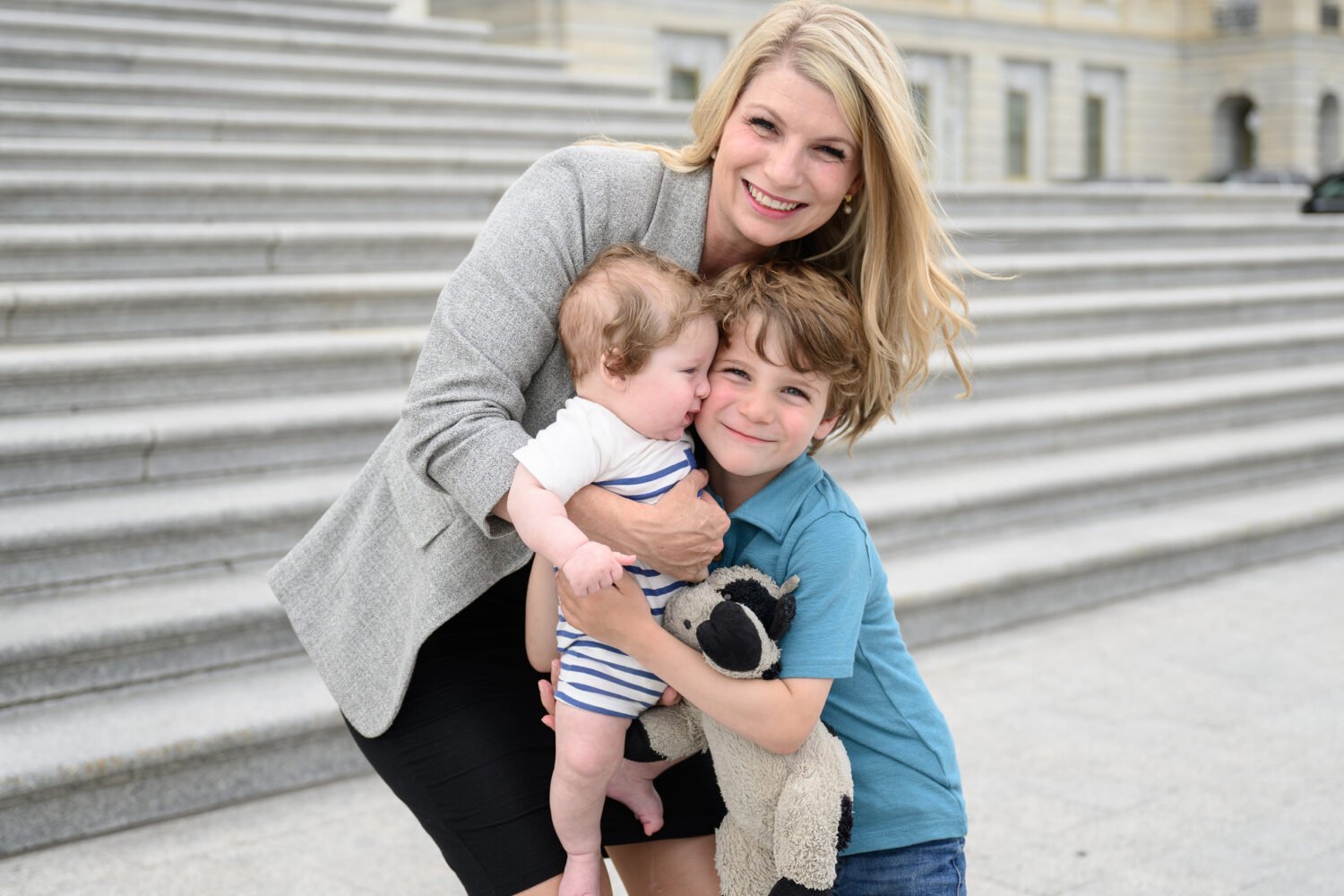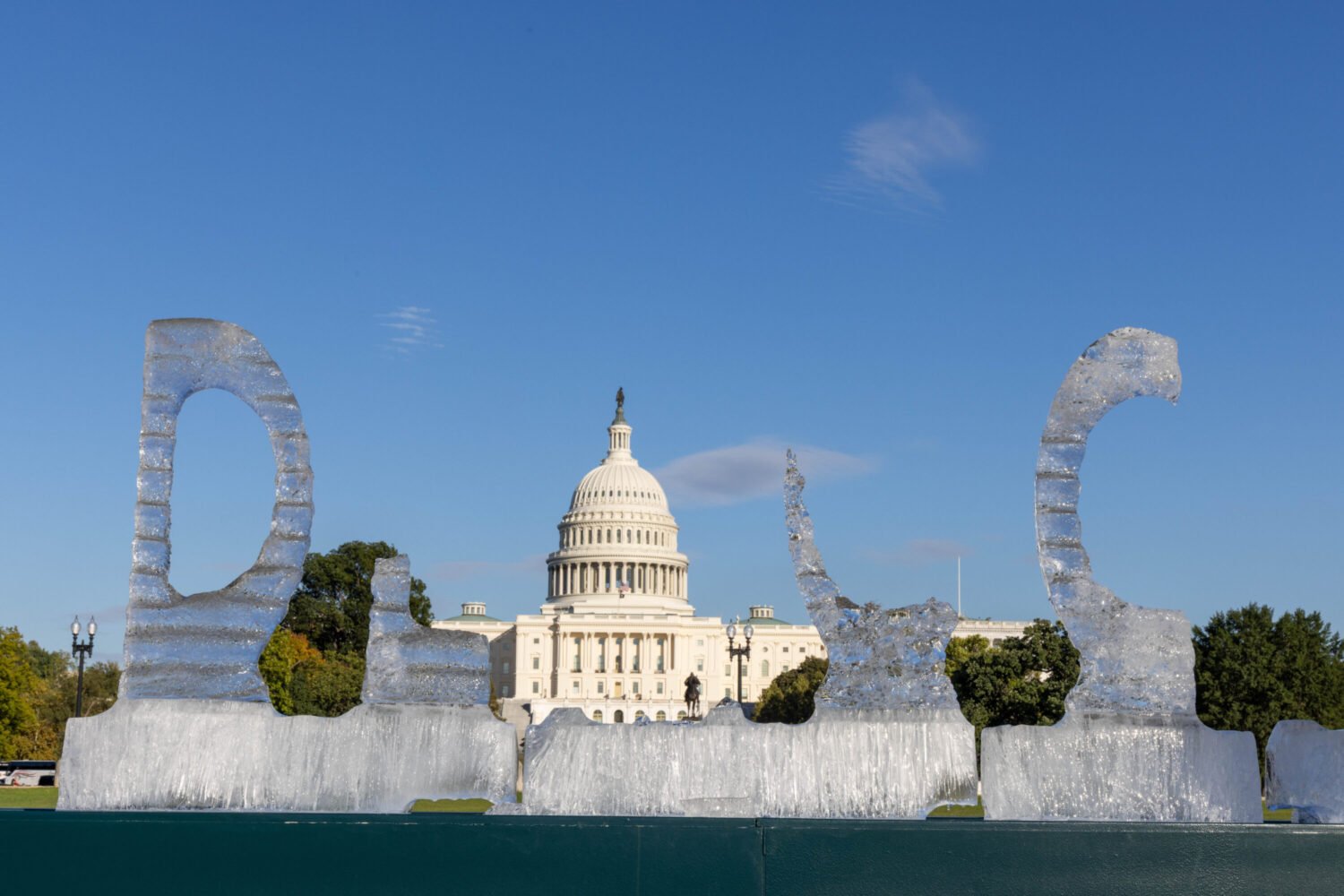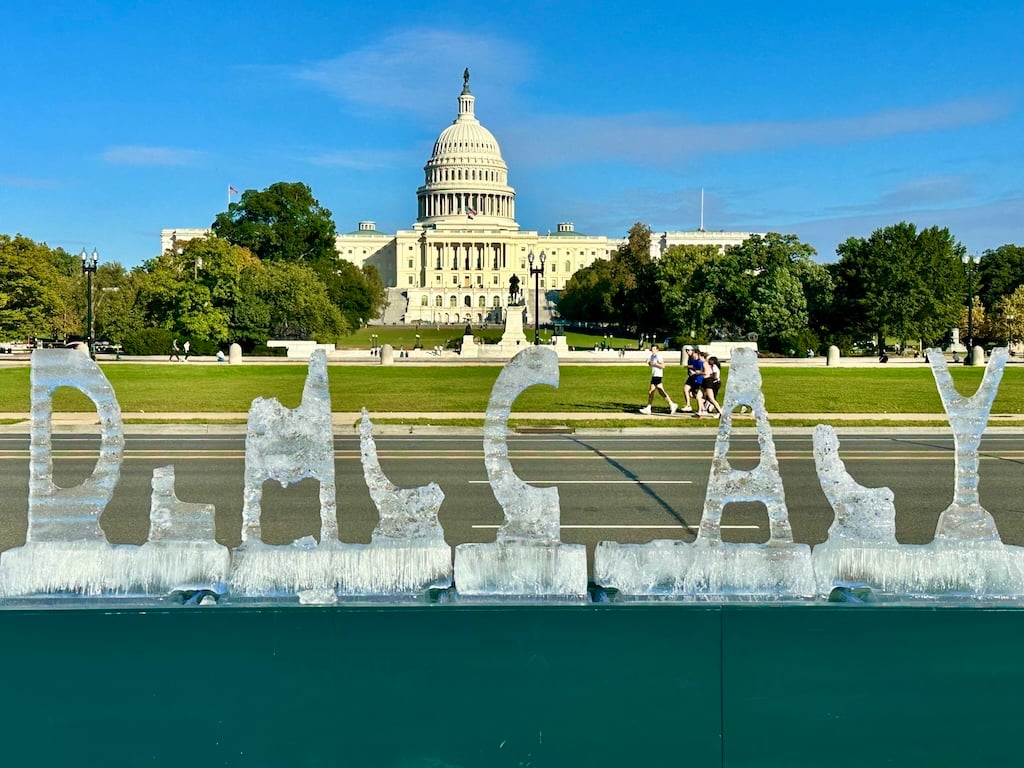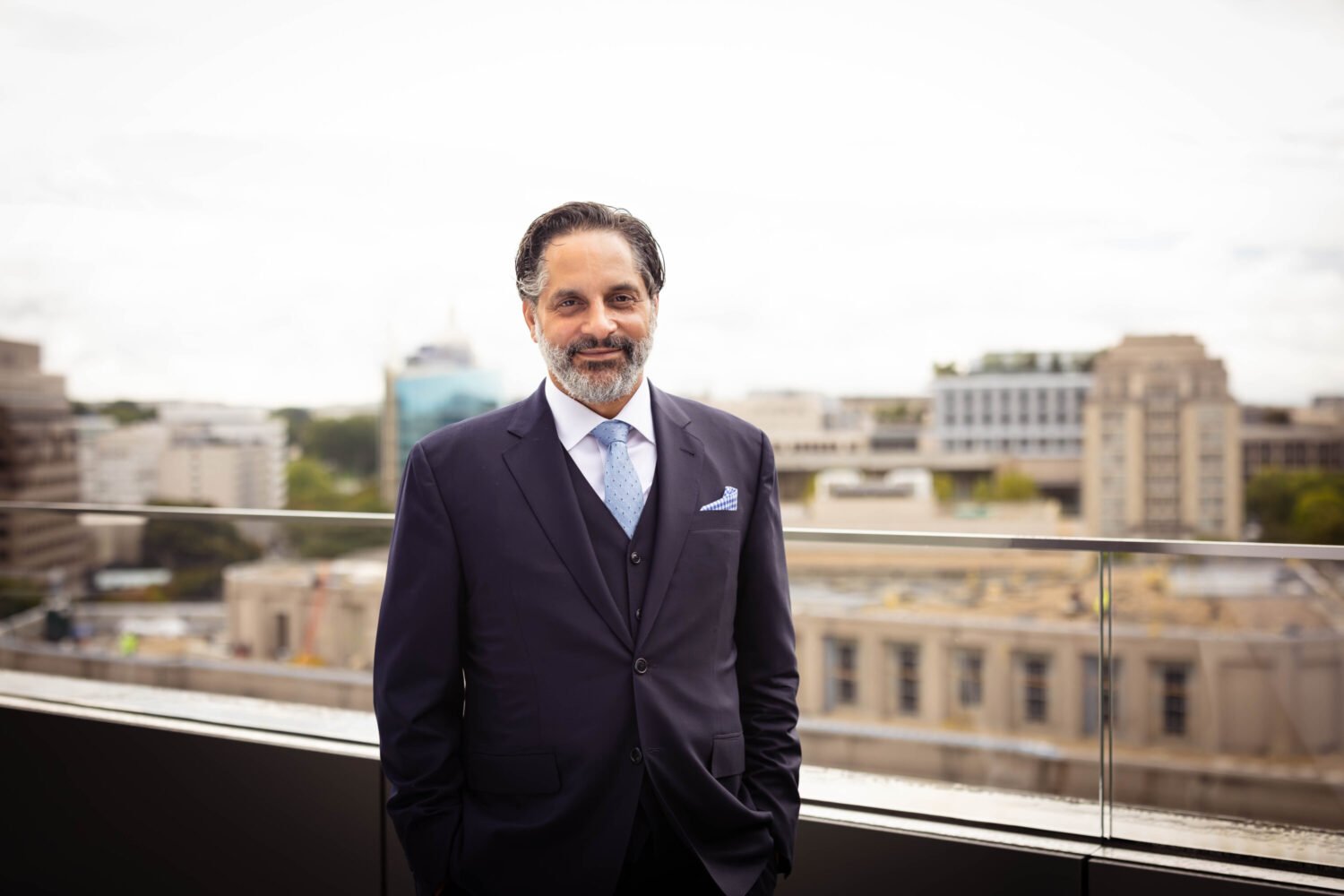Dig into the debate over gun rights that will be argued when the Supreme Court takes up the District of Columbia’s gun ban and you will find the tale of Adrian Plesha and the burglar.
It is not a stretch to say that Plesha’s story triggered the Supreme Court case.
On February 4, 1997, Plesha found a burglar in his Capitol Hill home near Union Station. According to Plesha, he heard the burglar upstairs, went out to his backyard, saw the man climbing out a window, and told him to freeze.
In Plesha’s version, the man climbed back in. Plesha went inside to get his nine-millimeter Sig Sauer semiautomatic pistol. He confronted the burglar on his porch.
“We were face to face,” Plesha told reporters. “I told him to freeze, and he reached for the gun. I fired in self-defense.”
Three times.
Gregory Nathaniel Jones told a different story. He admitted burglarizing Plesha’s rowhouse. When he heard Plesha downstairs, Jones tried to climb out the back window but saw Plesha aiming a pistol at him from the ground. He climbed back in and dropped out a front window and ran to the sidewalk.
As he fled, Jones said, Plesha shot him three times in the back. He ran another block and collapsed. He spent almost a month in the hospital.
Police investigators checked Jones’s jacket and found he was shot in the back. Adrian Plesha was arrested for carrying a pistol, which was illegal in the District. He pleaded guilty. Plesha got 18 months’ probation and 120 hours of community service. Jones got probation.
Dick Anthony Heller read about Adrian Plesha and, as Heller puts it, “went ballistic.” Plesha’s arrest on the gun charge offended Heller’s sense of justice and freedom—and, he believes, violated Plesha’s right to bear arms.
Heller, who lived on the other side of Capitol Hill, attempted to set up a defense fund for Plesha. He asked the National Rifle Association to join him in trying to overturn DC’s gun ban. The NRA declined. Heller then began looking for allies to overturn the law. In 2002 Heller helped DC native Robert Levy and his team of lawyers build a case against the DC gun ban.
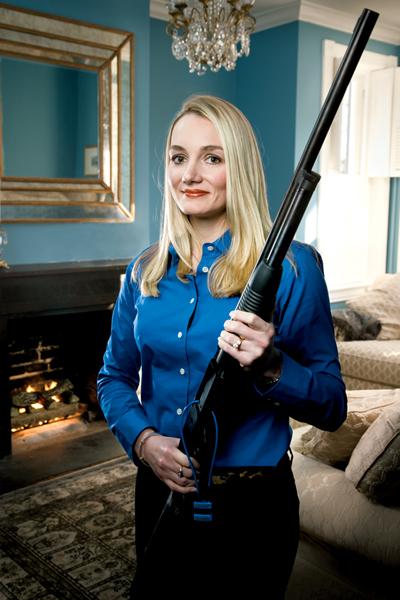
To Heller, the five other DC residents who joined the case, Vice President Dick Cheney, 55 senators, 250 representatives, 31 states, and the NRA, Plesha should have been able to have a pistol because the Second Amendment of the Constitution guarantees an individual’s right to bear arms.
The District of Columbia, a host of medical and children’s groups, five states, and the solicitor general of the United States say that states have the right to regulate certain guns and decide who can carry them and where. They suggest that arming DC residents might increase gun violence.
Plesha’s shooting of Jones is what the DC Council was trying to stop in 1976 when it passed a stringent gun law. Responding to polls that showed three out of four residents favored a handgun ban, DC’s first elected council voted 12–1 to make it illegal for all but police officers to own handguns.
In those days, the climate in the District and on Capitol Hill trended toward controlling access to and ownership of guns. Congress had passed the Federal Gun Control Act of 1968, which barred felons from owning guns. DC already had been nicknamed Dodge City because of its high crime rate.
Liberal business and political titans like John Hechinger and Walter Fauntroy lobbied for a near-total gun ban. A council composed of Marion Barry, Polly Shackleton, John Wilson, and other civil-rights veterans agreed. But they had no illusions.
“What we are doing today will not take one gun out of the hands of one criminal,” Barry said.
How right he was. Despite the fact that DC is home to 40 law-enforcement agencies, the illegal gun economy operates like a daily bazaar. Criminals import guns primarily from Maryland and Virginia.
People who work in downtown DC or live west of Rock Creek Park exist in a world mostly without guns. But residents of tough neighborhoods on the city’s east side hear gunshots as often as the chirping of birds. All but a few gun murders last year took place east of Rock Creek Park.
In 2006, police recovered 2,600 guns. Since 2000, more than 1,200 people have been killed with guns; 70 were children.
It is quite possible that on the morning of March 18, when lawyers present their arguments to the justices of the Supreme Court, someone will be gunned down within ten blocks.
Bills to overturn DC’s gun ban have been introduced in Congress over the years, but none was successful. Then in 2002, Robert Levy, a District native, joined lawyers connected with the libertarian Cato Institute to launch a legal attack on the 1976 law.
Last March the US Court of Appeals ruled 2–1 for Levy and his team. The court agreed that the Second Amendment gives citizens the right to have handguns in their homes. It also struck down DC’s requirement that long guns had to be disassembled or fixed with trigger locks.
“We’re not objecting to carry laws outside the home,” Levy says.
Mayor Adrian Fenty directed city lawyers to apply for Supreme Court review. The high court agreed November 20 to review the case, which sets up the first major review of the Second Amendment in 70 years. The justices are scheduled to hear arguments on March 18.
To put the issues into human terms, we present the stories of people directly involved in the case and people who could be affected by the outcome.
Gillian St. Lawrence: Ready to unlock the trigger
Sitting in her Georgetown living room with its Tiffany-blue walls, Gillian St. Lawrence could be a cover girl for Town & Country magazine—until she brings out a shotgun. With the black Mossberg Maverick 12-gauge pump-action on her lap, she looks like a model for the NRA.
“I lived in the South for many years, where guns are part of everyday life,” she says. She found out about DC’s strict gun-control laws from an NRA official who spoke to her Georgetown University government class. “I was shocked,” she says. “I couldn’t imagine you couldn’t defend yourself in your own home.”
In 2000 St. Lawrence started the process of registering a shotgun. It took two years before she completed background checks, filled out police-department paperwork, bought the shotgun, and fitted it with the blue plastic device that disables it until it’s unlocked.
“It would be nice to have a handgun,” she says. “It would be easier to use to defend yourself.”
St. Lawrence, 29, moved here when her father, Colonel Jeffrey Elting, was assigned to be one of President Bill Clinton’s doctors. She went to high school in Bethesda and Frederick. She met her husband, Paul, at Georgetown. He’s a lawyer; she runs a real-estate-investment firm from their home.
St. Lawrence is a libertarian. She worked for the Federalist Society, dedicated to “individual liberty, traditional values, and the rule of law.” At a 2002 conference of the Institute for Justice, she met people who knew Bob Levy, architect of the challenge to DC’s gun laws. He asked her to become one of the plaintiffs.
“DC’s gun law violates the Constitution,” she says. “If you can have a basic right under the Second Amendment taken away, what’s next?”
St. Lawrence adds, “People break into houses around here all the time.” She alone is licensed to use the shotgun—one person per firearm under DC law.
“It’s Paul’s job to call the police,” she says. “It’s my job to use it.”
If she can unlock the trigger in time.
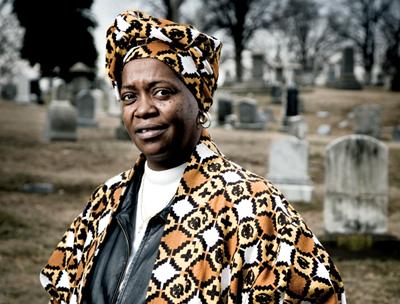
Shanda Smith: “I buried two kids”
Shanda Smith offers a streetwise argument against loosening the District’s gun-control laws: “I have two teenage sons,” she says. “Why would I want a gun in the house?”
But what if legalized guns had to remain in people’s homes?
“They’re going to wind up on the street,” she says. “If residents of Maryland and Virginia can’t hold onto their guns, and these weapons wind up on the streets of our city, what makes you think DC residents will do any better?
“If the Supreme Court lifts the gun ban, you are going to have a serious war,” she says. “Everybody will think they can defend themselves. There will be more shootings, more killings.”
Smith, who works for the District’s disability-services agency, speaks from experience. In 1993 her son Rodney was home on his first holiday from college. He had graduated from Anacostia High and gone to the University of Kansas on a football scholarship. He was studying engineering. On Christmas Eve he was driving on Martin Luther King Avenue with his 14-year-old sister, Volante.
Shanda Smith was a few blocks away when she heard shots, then sirens. “Couldn’t be my kids,” she thought. It was. In what police believe was a case of mistaken identity, two men had shot into the car and killed both.
Smith has joined other parents of children killed by guns to press for better law enforcement. “I’m dead set against allowing more guns in my neighborhood,” she says. “If you are not in law enforcement, you don’t need a gun.
“If I wanted a gun, I could have moved to Maryland or Virginia a long time ago,” she says. “But I don’t. I’m the one who buried two kids.”
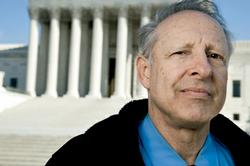
Dick Heller: Sticking to his guns
If the Supreme Court decides that the Second Amendment affirms an individual’s right to bear arms, that will go down in history as the Heller decision, named for Dick Anthony Heller.
Born in San Diego, the 66-year-old Heller joined the Army at 17, came to Washington because his parents had military jobs here, got an engineering degree at Montgomery College in the 1960s, and worked in banking, at NASA, in a stock brokerage, and as a consultant.
When he moved to the east side of Capitol Hill near the Kentucky Courts public-housing projects 38 years ago, he owned two rifles, including a Buntline Special.
“It was the kind Matt Dillon carried in Gunsmoke,” he says. “Chuck Connors used one in The Rifleman.”
When DC passed its firearms restrictions in 1976, Heller didn’t register his rifles. “I was grandfathered in,” he says. “It was none of the government’s business. The government and I had no interaction, except I paid taxes.”
Wiry and intense, Heller wears a black baseball cap with a silver pistol pin on the front. He now works in private security and carries a gun legally on the job.
“I saw Kentucky Courts transformed from a child-friendly welfare complex to a drug haven,” he says. “The top dealer would fire his nine-millimeter into the air at 2 am to close the market.”
In 1993, constitutional activist Dane vonBreichenruchardt rented a room from Heller. They talked about the government’s interference in private lives. “How can guns be more available to bad guys than to lawful citizens?” asked vonBreichenruchardt.
Adrian Plesha’s arrest for shooting at an intruder in 1997 focused their ire; they vowed to challenge DC’s law. VonBreichenruchardt founded the Bill of Rights Foundation. He talked up their crusade at the Heritage Foundation and the Cato Institute, where he “egged on” Bob Levy.
“All of a sudden, he announced he would put up the money,” says vonBreichenruchardt.
In July 2003, Heller attempted to register a handgun in DC. He was turned down. which meant he was “harmed” and has legal standing to sue. With the backing of Levy and others, Heller pursued the case to the US Court of Appeals, where he prevailed. The District appealed the decision to the Supreme Court, which will hear District of Columbia v. Heller in March.
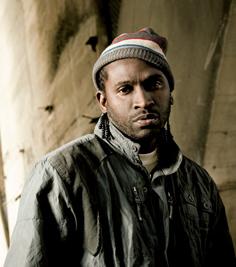
Big G: What it’s like on the streets
Shoot or be shot—the reality on some Washington streets—has played out in Anwan Glover’s life.
“I was fascinated by guns at a young age,” says Glover. “I took my brother’s gun from him when I was 13. I just liked to fiddle around with it after school.”
One day Glover was hanging out on a street corner in DC’s Columbia Heights when he heard shots. “I found myself on the ground,” he says. It was the first of some nine occasions, by his count, on which he took a bullet. At 35, he’s been arrested multiple times for gun possession.
“If you are brought up in that atmosphere with guns and gunfire, guns get under your skin,” he says. “Some feel they need a gun for protection, some because it makes them feel like a bigger person.”
Tall and lanky, Glover is known on the streets as Big G. Fans of the HBO series The Wire know him as Slim Charles, an enforcer with a gravelly voice. He’s also played roles on NBC’s Law & Order.
Offscreen, Big G has joined Peaceaholics, a DC nonprofit dedicated to making peace on the streets. He goes into schools and housing projects to preach against gun violence. A few months ago, his younger brother was killed by gunfire.
“There are more guns on the streets than ever before,” he says. “If they lift that ban, it will be even more horrible.”
That’s Big G’s forecast if residents can get licenses to carry guns. But the current challenge to DC’s law asks that guns be legal only in the home.
“I would love to have one at home to protect my wife,” says Big G. “Then again, there might be a kid in the home who’s fascinated by guns like I was. You would have to find a way to keep them safe.
“This is a tough debate.”
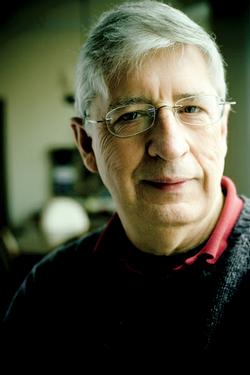
Walter Dellinger: Handguns are pernicious
When Walter Dellinger argues DC’s gun ban before the Supreme Court, it will be a homecoming of sorts.
He clerked for Justice Hugo Black in 1968 after finishing Yale law school. While teaching constitutional law at Duke University, he has argued 17 cases before the Supreme Court, one against Chief Justice John Roberts when Roberts was a deputy solicitor general.
“John and I have been good friends ever since,” Dellinger says. “The Supreme Court bar is a very small universe.”
Dellinger came from Charlotte, North Carolina. His father died when he was 12; his mother raised him and two sisters on a salesclerk’s salary.
Talking to Dellinger over brunch at the Hay-Adams hotel is like sipping Southern Comfort. His Southern drawl, easy smile, and gray-blue eyes are disarming—providing him a tactical advantage.
Dellinger, a partner at O’Melveny & Myers, volunteered to join the team of legal experts defending DC’s gun-control law and became the lead lawyer in January when acting DC attorney general Peter Nickles dumped Alan Morrison. Dellinger had never met Nickles. Nor has he ever owned a gun.
“Even though my background is in constitutional history,” he says, “I look at this not as a case about the Second Amendment. I am a lawyer with a client—the District of Columbia. I want to sustain a law that an elected city council deems important.
“Does the District of Columbia restrict the right to bear arms?” he asks. “No. It allows rifles. But handguns are a particularly pernicious kind of weapon, and it’s conceivable they could be taken into the Metro, supermarkets, schools.”
Dellinger hops on his worn-out bicycle to ride from the hotel to his office. He has two cases to argue before the Supreme Court—before he gets to the gun case.
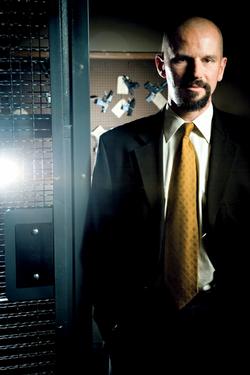
Joe Bisbee: Gun shops in DC?
Joe Bisbee is the top federal gun-hunter in DC, but he spends most of his time in Virginia, Maryland, North Carolina, and elsewhere.
“We have a different agenda than the DC police,” he says. “They are looking to fight crime and take guns off the street. We’re trying to cut off the source.”
Bisbee, 41, is the lead street agent with the Washington unit of the Bureau of Alcohol, Tobacco, Firearms, and Explosives. Since 1995 he’s been trying to take down gun-trafficking networks bringing illegal weapons into DC.
“The one-gun-a-month law in Virginia has affected people’s ability to bring a quantity of guns into the District,” he says of the mid-1990s law. “Maryland has strengthened some laws, too. But people will always find a way around.”
People like Garfield Hedlam.
Bisbee found a Bryco nine-millimeter pistol whose obliterated serial number he was able to restore. He traced it to a person in Norfolk, who fingered Hedlam.
Hedlam was an enlisted man in the Navy. Bisbee’s team tracked him from gun stores in Virginia to his home in Maryland. He used “straw purchasers” to buy guns in Virginia that he would resell for twice the price in Maryland and DC.
When they took down Hedlam and his group, Bisbee’s people identified 57 firearms and arrested ten straw purchasers.
Bisbee says DC’s handgun ban is “another tool we can use to go after criminals using guns. It gives us a reason to arrest.”
And if the Supreme Court overturns the ban and guns can be sold legally in DC?
“Are we going to have gun shops in DC?” he asks. “If so, it means I will be working closer to home.”
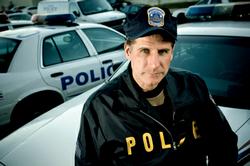
Curt Sloan: “There will alway be thugs with guns”
Sergeant Curt Sloan is the DC police department’s most experienced gun-recovery cop. His squads have taken thousands of guns off the streets. Former chief Charles Ramsey didn’t see gun recovery as a priority and disbanded the unit. Chief Cathy Lanier reinstated it last October.
Up and running now with a force of 29, the Gun Recovery Unit has seized 94 handguns, three assault rifles, nine shotguns, and 11 rifles since November 1.
“If you keep recovering guns,” Sloan says, “violence has to go down.”
If the Supreme Court overturns the ban and allows DC residents to register handguns, will that make his job harder?
“Not really,” he says. “They’re still not going to issue licenses to carry on the street. They’re just talking about the ability to license in the home.
“There will always be thugs with guns. They need guns to ply their trade. That’s who we focus on.”
But a change in the law won’t matter, he says. “It could put more guns on the street. A good person can be conned into buying a gun that will be used by a bad guy. But it won’t change much. Thugs don’t go by laws.”
Born in Pittsburgh, Sloan, 48, came to DC in 1986 and joined the police department two years later. He made sergeant in 1993 and has focused on guns ever since.
“The criminal element is carrying guns more than in the past,” he says. “More guys are carrying more guns. More are willing to use them.”
Sloan and his squad, in SWAT gear, head out to search a house for guns. “We are being legally aggressive,” he says.
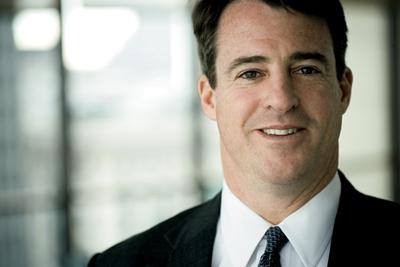
Douglas Gansler: DC should be able to draw the line on handguns
Douglas Gansler, Maryland’s attorney general, began his legal career as a federal prosecutor in DC, locking up violent criminals. “I saw how effective a tool DC’s gun-control law could be in taking criminals off the streets,” he says.
Maryland, with Gansler’s support, has joined New York, Illinois, and other states in filing legal briefs backing the DC ban in the impending Supreme Court case.
“It’s almost absurd to think that the Second Amendment grants the right to bear arms to an individual,” Gansler says.
Gansler, 45, grew up in Montgomery County. After the University of Virginia law school, he became a federal prosecutor in DC. He then served as Montgomery County’s state’s attorney for eight years before winning the race for attorney general in 2006.
One could argue that Gansler’s advocacy of handgun control in DC puts him on thin ice. DC cops trace the majority of guns taken off city streets to Maryland. Realco, a gun shop in Prince George’s County, sells “more than three times the number of traced guns as the next most frequent dealer,” according to DC’s 2006 annual report on guns.
“We’re aware of that,” Gansler says. “The guns are bought legally, then transported illegally into DC. The law allows people from other jurisdictions to come to Maryland and buy guns if they don’t have a felony record. What you do with the guns is your business.”
Gansler says he is “not one of those antigun zealots. I have no problem with having guns in the home to protect the family. What I’m unwilling to accept is that people have a constitutional right to do so.”
Gansler and the others who joined the Supreme Court amicus brief argues that states have a right to regulate weapons. “States can ban assault rifles, bazookas, tanks,” he says. “The District of Columbia has drawn the line down to handguns.
“If people don’t agree with that,” he says, “then they can change the law.”
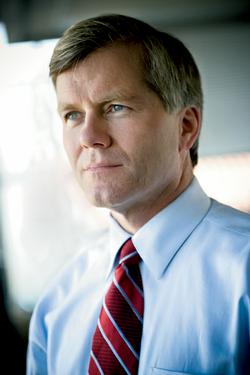
Robert McDonnell: Gun permits up, violent crime down
Virginia may be turning blue on the electoral map by choosing Democratic governors and senators, but when it comes to firearms, color the state black—for the barrel of a gun. The Old Dominion has joined several states in filing briefs arguing that DC’s handgun ban violates the Constitution.
“This is the most important case interpreting the Second Amendment in history,” says Virginia attorney general Robert McDonnell. “We believe it’s pretty clear that the right to bear arms is an individual right.”
McDonnell, who grew up near Mount Vernon, has never owned a gun. He first handled a firearm in ROTC at Notre Dame. In the Army, he says, “I shot everything from .45s to tanks.” He sometimes takes his two sons to a shooting range.
Gun-control advocates bristle that Virginia—the source of many illegal guns on the streets of the capital—is backing an effort that could bring more guns into DC.
“Some of the guns are stolen or moved through an illegal chain of commerce,” he says. “They are sold lawfully first, then unlawfully the second time.”
New York City mayor Mike Bloomberg complains that guns from Virginia bloody his streets. And the 2007 massacre at Virginia Tech raised questions about the ease with which guns can be bought there.
Virginia allows carrying of concealed weapons. As the number of carry permits has gone up, McDonnell says, “the violent-crime rate has gone down.”
McDonnell aspires to be governor in a state where gun votes swing elections, but he says, “This is not about politics. It goes to the core of the federal system and what we believe about the Constitution.”
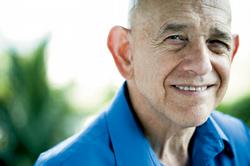
Robert Levy: Protecting rights of the minority
The godfather of the assault on DC’s gun ban is a native son. Robert Levy, a wealthy lawyer with libertarian leanings, was born at Sibley Hospital. His father ran Kennedy Hardware near the Petworth neighborhood. He went to DC public schools, graduated from Coolidge High, got three degrees at American University.
“Washington was a great place to grow up,” Levy says. “I never felt at risk from crime. As far as I knew, my parents never had a gun.”
Levy moved to Montgomery County, married, and raised a son. In 1966, he started an investment-research and software-development firm. His offices went from his parents’ living room in DC to Silver Spring, Wheaton, and Rockville.
He sold the business and became a multimillionaire before age 50. Then he got a law degree from George Mason University. He clerked for two federal judges, Royce Lamberth and Douglas Ginsburg. He never practiced law but became a constitutional scholar. He’s been a jazz pianist all along.
Levy, 66, is a gentle man with a wry smile—and a fierce commitment to fight what he sees as government intrusion.
“I have been viscerally libertarian ever since I can remember,” Levy says from his new home in Naples, Florida. “Government should stay out of our bedrooms and our wallets.”
In 2002 Levy collaborated with two young lawyers, Clark Neilly and Alan Gura, and financed a lawsuit arguing that DC’s handgun ban violated the Second Amendment. They rounded up six Washingtonians willing to sue the District. Gura will argue the case before the high court.
Why does constitutional law outweigh a referendum of residents in favor of the ban and a city council that supports it?
“We don’t have a pure democracy,” Levy says. “We are a republic, a representative democracy. The rights of the minority are protected against the majority—51 percent can’t vote to restrict religion or free speech.”
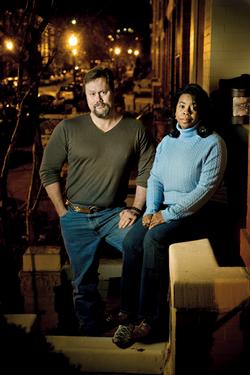
Andrew and Tracey Hanson: What do criminals have to fear?
Tracey Ambeau met Andrew Hanson in 1999. She was from St. Gabriel, Louisiana; he was from Waterloo, Iowa. She came to DC in 1991 to work for the Agriculture Department; he joined the staff of Iowa senator Chuck Grassley in 1985 and now works for the EPA.
They dated for six years and were married in 2005. They live in a rowhouse with high ceilings, wood floors, and a new kitchen. Their neighborhood, off North Capitol Street a quarter mile north of Union Station, is what real-estate people call “transitional.”
Rival gangs brawl. Two neighbors were shot walking their dogs. Some neighbors carry “mugging money” to give to robbers who might get violent if they come up empty.
“The law says we have to cede the streets to these folks,” Andrew says. “But their rights end when our threshold begins.”
Tracey grew up around guns. Her uncles hunted; her mother kept a handgun. “We knew where it was,” she says. “We knew it wasn’t for us.
“It was absurd to me that there was an absolute ban on handguns in DC.”
Andrew has registered a shotgun. He keeps it disabled and locked up. “If someone broke into our house,” he says, “I could use it as a club.”
In 2002, the Hansons had a chance meeting with an NRA official at a sporting-goods store in Virginia. He described the lawsuit challenging DC’s gun laws. They expressed interest. A year later, a lawyer from the Cato Institute asked them to attend a meeting.
Tracey Hanson agreed to become one of the plaintiffs in the court challenge.
“Our lawsuit is not asking that people be allowed to carry concealed weapons in public,” she says. “It would allow us to legally own guns only in our homes. If criminals thought a home might have a lawful gun, they might not feel the freedom to break in and invade. Now they have no fear.”
What do they have to fear now?
“A baseball bat,” says Andrew.
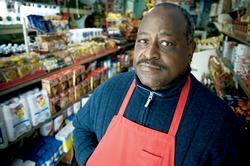
Irving Parker: What if criminals knew their target was carrying a gun?
Three years ago a robber walked into Suburban Market, a grocery store on Sheriff Road along DC’s border with Prince George’s County.
The man pulled a gun. “You know what this is?” he asked owner Irving Parker. “Give me everything from your drawer.”
Parker, 63, grew up in DC using his fists for fun with friends and protection from foes. His father, Henry, worked every day in the store, sent Parker and his seven siblings to college, and passed the business on to his son.
“Can I get you a bag?” Parker says he asked the robber. He invited him behind the counter. When the intruder leaned over to look, Parker grabbed his sleeve and pulled up the arm with the gun. The gun went off twice. Parker lifted the man up, dropped him on his head, shook the gun loose, and sat on him until police arrived.
“As businessmen,” he says, “we have nothing to protect ourselves. I fear for myself. We need guns. We need protection.”
Parker says DC was safer when he was growing up in the 1950s. “We didn’t have problems with guns,” he says. “People owned rifles for hunting. We had rifle clubs in the high schools and shooting ranges in school basements.”
Things have changed.
“Some people think they can take what they want,” says Parker. “I think it would be good to have more guns in the hands of law-abiding citizens. Maybe criminals wouldn’t do things if they knew their targets were carrying a gun.”
Parker says he sees too few police officers. “If I call 911, they don’t come,” he says. “I would be dead and gone by the time they arrived.
“I would feel safer if I had a gun and could go home with it.
“You know what I have now for protection?,” he says. “A screwdriver.”

